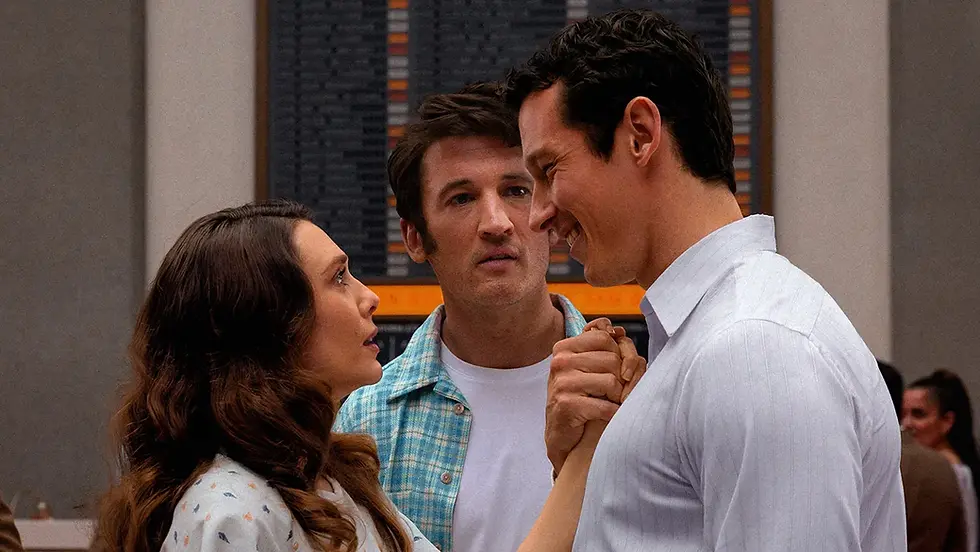Review: Gripping 'Mangrove' tackles racial injustice in dramatic courtroom setting
- Nate Adams

- Nov 17, 2020
- 3 min read

Courtesy of Amazon Prime Video
It only took 50 years but the Mangrove Nine are getting the spotlight in Steve McQueen’s compelling and racially charged “Mangrove.” The story, about Black British activists who fought against a corrupt police department, couldn’t speak more soundly at our current moment in history, concluding with 45 minutes of pulse-pounding courtroom theatrics. You might already know the outcome, but McQueen (“12 Years a Slave”) delivers a rousing crowd-pleaser that’ll keep audiences hanging on every syllable
Produced as part of the filmmakers sprawling five-film anthology “Small Axe,” “Mangrove” is at first a film about the Black experience in a small London suburb, and then evolves into a judicial drama that manages to rise above its already lofty expectations. We’ve seen the courtroom formula retooled and restructured countless times, though McQueen – as he did with the heist genre in “Widows” – digs deeper. Not only does he rework the procedural courtroom drama, but keeps the film grounded, building a wide landscape for his performers to bask in.
The title of the film refers to the West Indian restaurant in Notting Hill run by Frank Crichlow (Shaun Parks) a Trinidad immigrant known for his spicy cuisine. His restaurant provides sanctuary for Blacks in the community and eventually became the stage for a turf war between himself and the local constabulary.
Tired of constant raids (on baseless accusations) led by officer Frank Pulley (Sam Spurrell – in a despicable turn) throughout his restaurant, Crichlow decides to engage Black Panther leader Altheia Jones LeCointe (Letitia Wright channeling Shuri from “Black Panther” but still doing her own thing) to organize a peaceful protest that, predictably, ends in violence.
This sets up the ensuing 11-week trial, where the Mangrove Nine, which included Darcus Howe (Malachi Kirby) and his partner Barbara Beese (Rochenda Sandall), defended themselves against flagrant charges surrounding the protests. While two defendants decided to represent themselves (a tactic that proves a captivating dramatic grandstand) others enlisted white attorney Ian MacDonald (Jack Lowden) to lead the fight. After weaving through numerous courtroom troupes ranging from the appointment of Judge Edward Clarke (Alex Jennings) to the hotly contested jury selection, “Mangrove” gains steady momentum.
Boiling with anger and frustration, Parks is a tour de force as Crichlow, someone trying to understand the troubled justice system who at one point asks a legal advisor to chat with local youth about their rights as citizens, a painful reminder of how uneducated people are in today’s world. This just one of many instances where McQueen captures the entire scope of the story.
“Mangrove” has found itself in the same release cycle as Aaron Sorkin’s “The Trial of the Chicago 7,” an equally crowd pleasing film that tackled similar issues in a courtroom setting circa 1968. They would make an excellent double bill because “Mangrove” expands on the Black Panther party and their strategy to fight for basic human rights in a way “Chicago 7” brushed aside. That’s not saying “Chicago 7” is a horrible movie as Sorkin and McQueen both want the same thing. But “Mangrove” paints a far more intimate portrait of the journey to self redemption and McQueen makes it clear that while Crichlow and the Mangrove Nine might have won small victories, their battles, at the time, were far from over.
Grade: A-
MANGROVE debuts on Amazon Prime Video as the first part of Steve McQueen’s SMALL AXE anthology Friday, November 20th





Comments